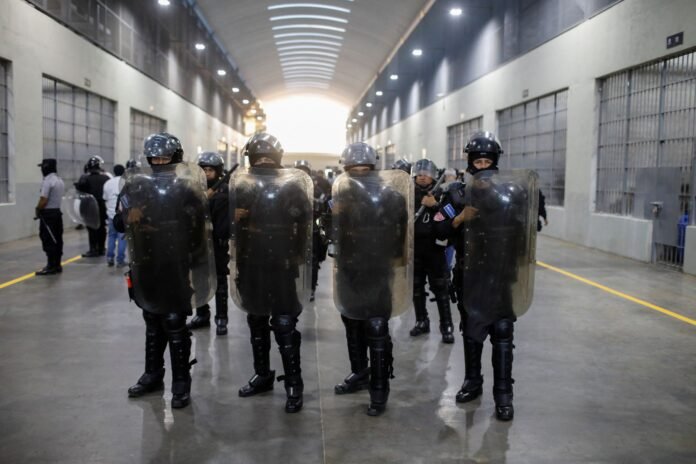As tensions with traditional allies continue over trade and defense policy, El Salvador’s President Nayib Bukele has emerged as a key partner to the United States under President Donald Trump. Bukele is set to visit the White House on Monday, solidifying a growing relationship centered on immigration enforcement and regional security.
Bukele has cooperated with the U.S. administration by accepting deported individuals identified as gang members or violent offenders. This collaboration supports the administration’s broader plan to deport up to one million undocumented individuals within the first year of Trump’s second term.
A recent update from senior U.S. officials confirmed the removal of 10 additional individuals alleged to have gang affiliations. These developments were framed as a model for regional cooperation, reflecting a strategic shift in U.S. foreign engagement.
President Trump praised Bukele for his efforts, describing him as someone “taking care of a lot of problems.” The two leaders have maintained strong public support in their respective countries despite international concerns. Bukele, who has concentrated power and suspended civil liberties in his anti-gang campaign, was recently re-elected by a wide margin.
Much of the deportation effort has centered on El Salvador’s Terrorism Confinement Center (CECOT), a high-security prison that has been used to detain those deported under gang-related allegations. The Salvadoran government released a video showing the arrival of the latest group of deportees, escorted in shackles.
Although the administration claims that those deported are violent criminals or linked to gangs, court documents have often cited tattoos or clothing as primary evidence. In some cases, legal justification for these deportations has drawn on the Alien Enemies Act an 18th-century statute allowing expedited removals during wartime. The Supreme Court recently allowed continued use of this law for now, though legal scrutiny remains.
One case that has gained national attention involves Kilmar Armando Abrego Garcia, a Maryland resident mistakenly deported to El Salvador. A federal court ordered the U.S. government to “facilitate” his return, though the administration argued it is not obligated to coordinate directly with Salvadoran officials to bring him back. The Supreme Court upheld the directive but stopped short of mandating his return.
The administration has said Abrego Garcia is “alive and secure” in the CECOT facility, though details about efforts to return him remain vague. When asked whether Bukele might assist in bringing him back during the White House visit, a spokesperson noted the court’s language only required the government to assist in the process, not to carry it out unilaterally.
Bukele’s visit is expected to focus on strengthening cooperation on immigration enforcement and regional stability. U.S. officials have expressed appreciation for El Salvador’s role in receiving deportees and assisting in efforts to combat transnational crime.
For more political updates, visit DC Brief.


